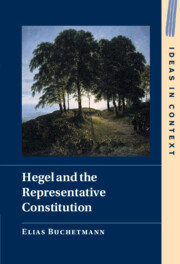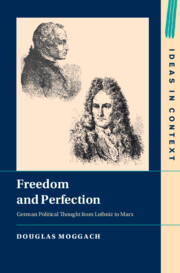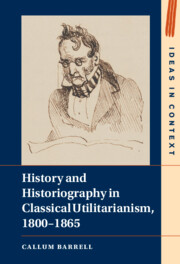Hegel and the Representative Constitution
Hegel and the Representative Constitution provides the first comprehensive historical discussion of the institutional dimension of G. W. F. Hegel's political thought. Elias Buchetmann traces this much-neglected aspect in unprecedented contextual detail and makes the case for reading the Philosophy of Right from 1820 as a contribution to the lively and widespread public debate on the constitutional question in contemporary Central Europe. Drawing on a broad range of primary source material, this volume illuminates the wider political discourse in post-Napoleonic Germany, carefully locates Hegel's institutional commitments within their immediate cultural and political context, and reveals him as something closer to a public intellectual. By exploring this indispensable thinker's demand for the constitutional protection of popular participation in government, it contributes beyond Hegel scholarship to shed new light on the history of democratic theory in early nineteenth-century Europe and encourages critical reflection on questions of representation today.
- Offers an accessible reading of Hegel, and a new way into the Philosophy of Right to engage readers normally put off by his complex philosophy and language
- Draws on previously neglected source material to offer new viewpoints and broader historical context
- Engages scholars from both sides of the metaphysical / non-metaphysical divide, without making it the focus
Reviews & endorsements
‘The overview of German, but also European, intellectual and political life of the time will serve both those interested in the contextualization of Hegel's thought and those who study the history of law or the state of political science at that time.’ Florian Rada, Archives de philosophie
Product details
March 2023Adobe eBook Reader
9781009305938
0 pages
This ISBN is for an eBook version which is distributed on our behalf by a third party.
Table of Contents
- Introduction: humanising Hegel
- 1. The constitutional question in post-Napoleonic Germany
- 2. On the nature of constitutions
- 3. The distribution of power
- 4. Debating the two-chamber system
- 5. The representation of interests
- Conclusion.






